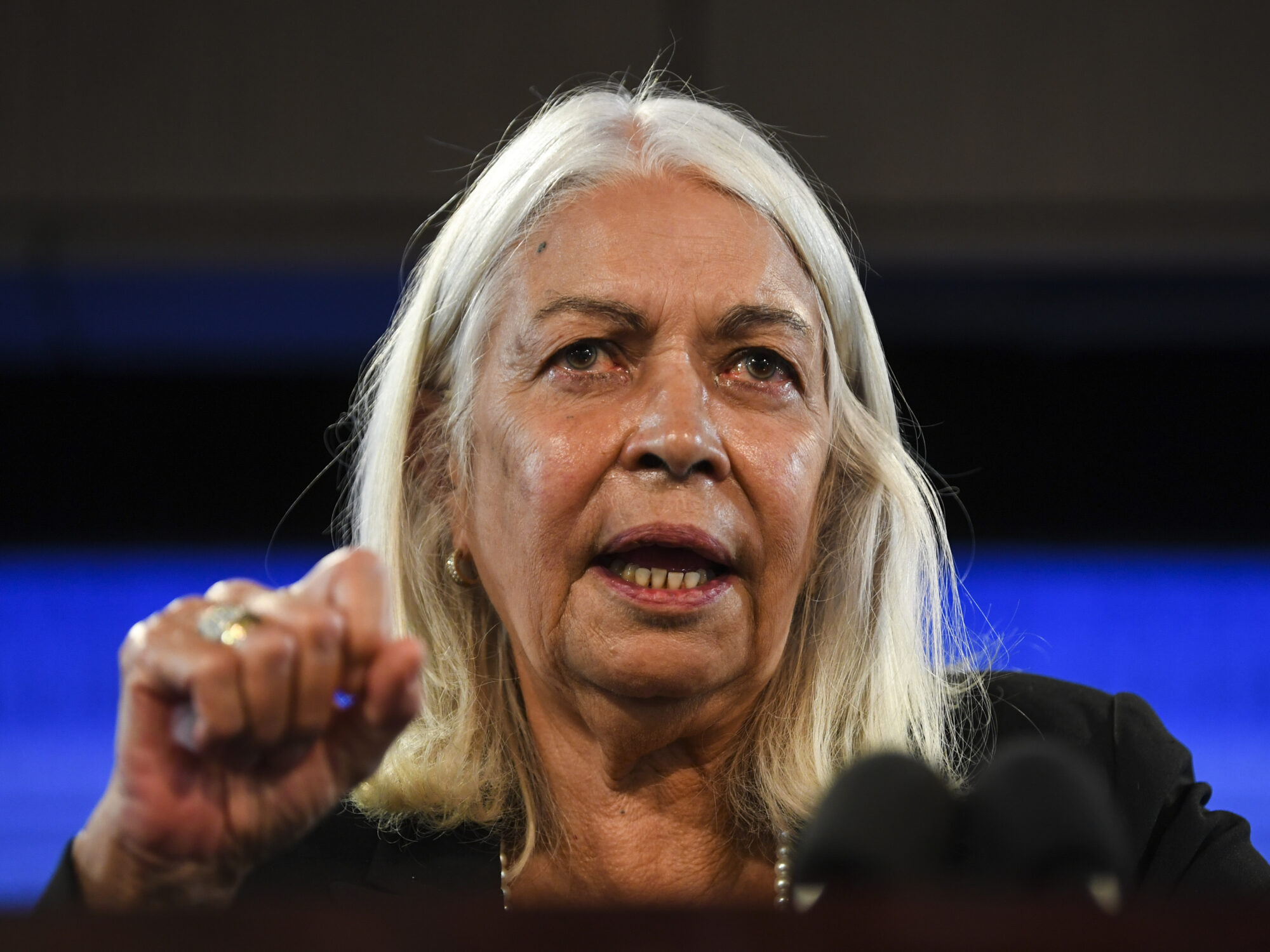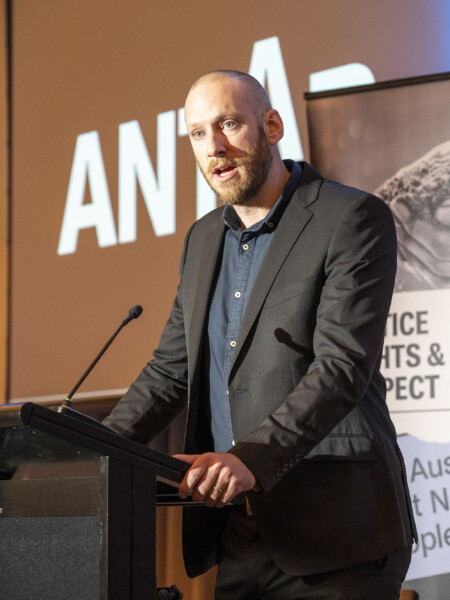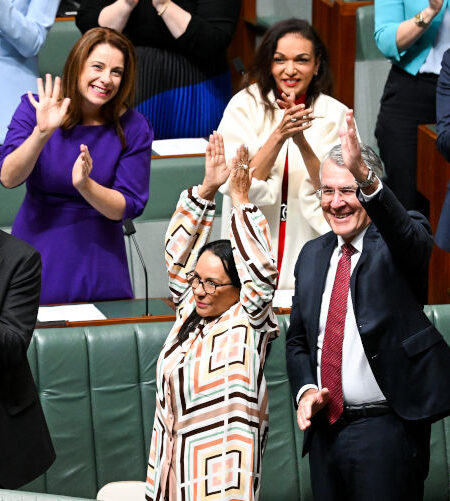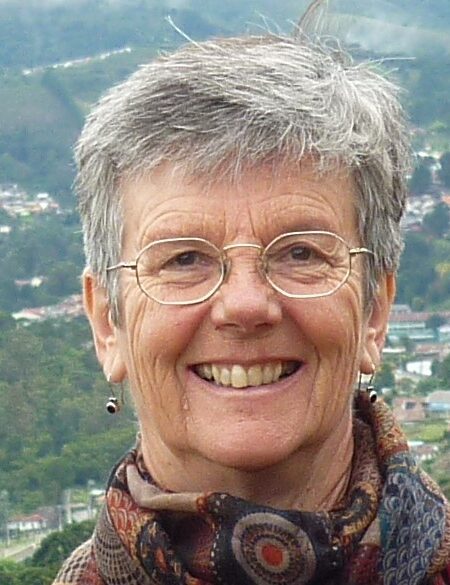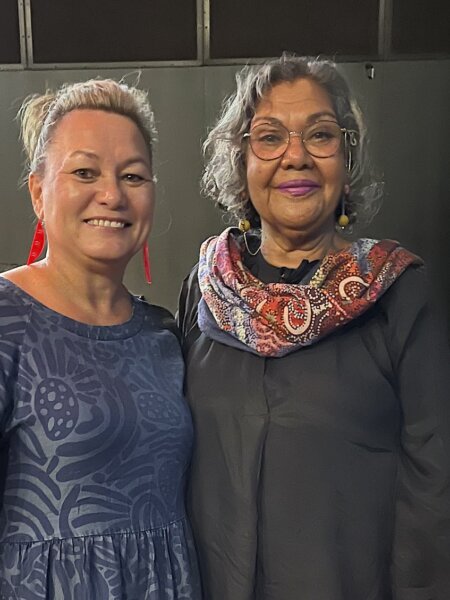The provisions Australians will be voting to approve, are as follows:
“Chapter IX Recognition of Aboriginal and Torres Strait Islander Peoples 129 Aboriginal and Torres Strait Islander Voice
In recognition of Aboriginal and Torres Strait Islander peoples as the First Peoples of Australia:
1. There shall be a body, to be called the Aboriginal and Torres Strait Islander Voice;
2. The Aboriginal and Torres Strait Islander Voice may make representations to the Parliament and the Executive Government of the Commonwealth on matters relating to Aboriginal and Torres Strait Islander peoples;
3. The Parliament shall, subject to this Constitution, have power to make laws with respect to matters relating to the Aboriginal and Torres Strait Islander Voice, including its composition, functions, powers and procedures.”
The question Australians will be asked at this year’s referendum will be as follows:
“A Proposed Law: to alter the Constitution to recognise the First Peoples of Australia by establishing an Aboriginal and Torres Strait Islander Voice. Do you approve this proposed alteration?”
On announcing these details, the Prime Minister went on to say that the form of words for the Constitutional amendment is legally sound, and that:
… it is the form of words that all of us have confidence will gain the strongest possible support from the people of Australia at the referendum – and deliver the best possible outcomes in the years ahead. The constitutional provisions we are releasing today enshrine two fundamental principles: Recognition and Consultation.
First, Recognition. As Australians, we have an extraordinary privilege. We share this great island continent with the world’s oldest continuous culture. Our nation’s birth certificate should recognise this and be proud of it. People who have loved and cared for this country for 65,000 years and more. In countless ways, we embrace that as a source of great pride – and we should recognise it, we should recognise it.
Secondly, Consultation. Not a radical notion – a sensible and practical proposition that Aboriginal and Torres Strait Islander people should have a say in the decisions and policies that affect their lives.
What is now clear is that the proposed amendment to the Constitution will sit in its own chapter at the end of the Constitution, a new section 129. The title of the chapter will be ‘Recognition of Aboriginal and Torres Strait Islander Peoples’. It avoids the use of the term ‘First Nations’ because the term Aboriginal and Torres Strait Islander is long-standing and well accepted.
The only change from the proposed amendment presented by the Prime Minister at the Garma festival last year, is to sub-section 3. Concerns had been raised about what the High Court of Australia might draw from sub-section (2) that the representations by the Voice must be considered by government decision-makers before they can validly make a decision, potentially resulting in litigation and the delay of decision-making.
Constitutional expert, Emeritus Professor Anne Twomey from Sydney University, explains that the concerns had little to no substance, but some words have been added to the end of sub-section (3) to make it abundantly clear it is a matter for Parliament to decide what the legal effects of the Voice’s representations would be.
The Prime Minister also acknowledged the input of the Working Group and in particular the development of a set of design-principles that will underpin the shape and function of the Voice. The principles mean that:
- The Voice will give independent advice to the Parliament and Government. It will be able to make proactive representations – as well as respond to requests.
- The Parliament and Executive Government should seek written advice from the Voice early in the development of proposed laws and policies.
- The Voice will be chosen by Aboriginal and Torres Strait Islander people, based on the wishes of local communities – not appointed by the government.
- Members will serve for a fixed period of time to ensure accountability.
- It will be representative of Aboriginal and Torres Strait Islander communities, with a gender-balance and include youth.
- Members will come from every state and territory, the Torres Strait Islands and specific remote representatives.
- The Voice will be accountable and it will be transparent, subject to the standard governance and reporting requirements.
- The Voice will work alongside existing organisations and traditional structures, respecting their work. And, as has been made clear very many times, the Voice will not have a veto power, and it will not deliver programs or manage funding.
The legislation that will enable the referendum will be tabled in Parliament on 30 March 2023, and the referendum is likely to be held in October, so as not to clash with major sporting events.
This is a significant milestone in the evolution of Indigenous policy in Australia. It is important to reflect on the fact that this has emerged from almost two decades of discussion and debate about the lack of recognition of the First Peoples of Australia in our founding Constitution.
At the hour-long media conference releasing the details of the Referendum Question, two comments stood out for their contextual significance.
The first was a comment by the Prime Minister when he said that there will be people who will have a different opinion and will say “no”. But he went on to say the debate needs to be based upon facts, and not on scare campaigns that have no basis. He noted that the Voice to Parliament is a modest request:
This is a real opportunity to take up the generous invitation of the Uluru Statement from the Heart. This is about the heart, but it’s also about the head. If you think things have been working up to now, look at the closing the gap issue. If you want to look at the best programs for Indigenous Australians that have been successful, they have all been characterised by having that sense of ownership. They’re the things that have worked. They’re the things that will work in the future. This is not about symbolism. This is about recognition, something that’s far more important, but it’s also about making a practical difference which we have, we have, a responsibility to do.
The second comment was the answer Professor Marcia Langton AO gave in response to a question from a journalists about why the Voice would be different, and what measures and safeguards would be put in place to ensure that the gap is finally closed when previous bodies haven’t delivered the intended outcomes.
Professor Langton’s response was forthright and very clear. She said there have been many advisory groups and consultative groups and councils – with about seven of them in her lifetime and in the memory of many of her colleagues in the media conference. Professor Langton said:
There’s no evidence to suggest that they didn’t work. And, you know, I have been around since the very first one. And indeed, they did make a very positive difference. But what has happened in most cases is that with each election, a party will use as its appeal to the voters that it will get rid of this X, Y, Z body, because it’s clear that it’s not working. … And you know, there are some of us here who’ve lived through every one of those encounters. There’s no evidence for the proposition that they didn’t make a positive difference. In fact, some of them made an enormously positive difference. But you know, it was in a room like this, elsewhere on the planet, where the idea of the alternative facts was announced to people just like you, and this is what we are contending with constantly.
I want to acknowledge people who are not here today. You know, there’s wonderful people who have been with us on this journey. Noel Pearson, and particularly Galarrwuy Yunupingu. He taught me many years ago that you know when you’re being told the truth, because the truth burns. And truth is very much an Aboriginal value and a Torres Strait Islander value across the country. So that is a part, very much a part, of our thinking. That’s why the Uluru Statement from the Heart calls for a Voice, Makarrata, and truth-telling. So before you all rush off and recite what was said yesterday by a person who has never participated in any of these processes, I would like you to look for the evidence for such assertions. But believe us, each one of us here has been involved in a major initiative. The Royal Commission into Aboriginal Deaths in Custody. The inquiry into the forced removal of Aboriginal children from their families. The Don Dale Royal Commission. I could go on and on. And in each case, we have doggedly recommended changes to stop the deaths, the incarceration, the early deaths, and the miserable lives. And it is so infrequently that our recommendations are adopted. This is why we cannot report on many improvements in the closing the gap indicators. And each year, people like you come along to listen to that misery fest, and each year, people go away wringing their hands. We’re here to draw a line in the sand, and say this has to change, people’s lives have to improve. And we know from the evidence that what improves people’s lives is when they get a say. And that’s what this is about.
The Prime Minister’s closing remark at the media conference was that “Australia will be seen as a better nation by the rest of the world” if we decide to include the recognition of the First Peoples of Australia in our Constitution.
Australia once had a very proud record of supporting human rights in the international arena, stretching back as far as assisting with the drafting of the Universal Declaration of Human Rights in 1945. In recent decades we have trashed our international reputation in relation to human rights, for example by not initially supporting the United Nations Declaration on the Rights of Indigenous Peoples. It’s time to stop trashing it and show our support for the First peoples of Australia.
To echo the sentiments of the Prime Minister, if we don’t make this important change to our Constitution now, then when will we?
This Blog was originally published by LGiU Australia and SGS Economics and Planning for a local government audience.
